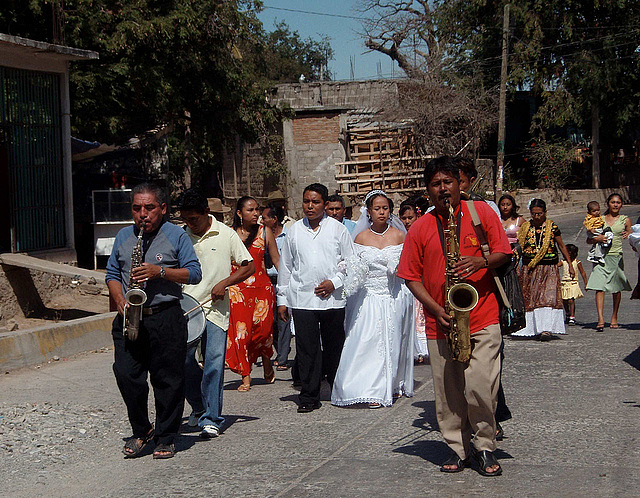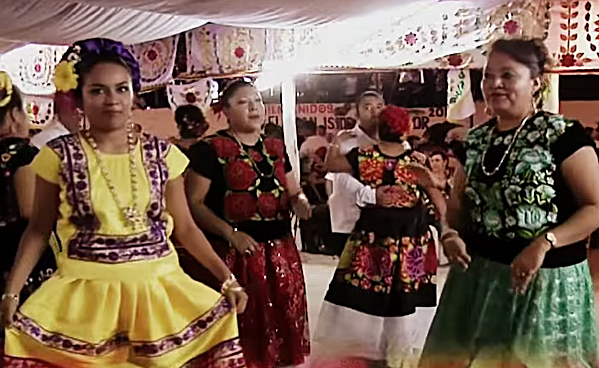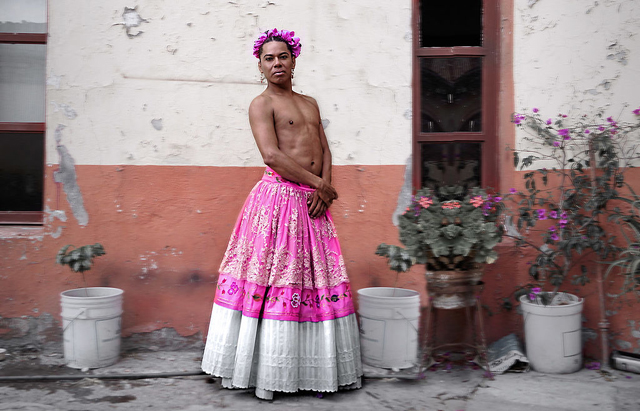The New York Times last week put a new twist on the “bathroom debate” currently roiling conservative circles in the U.S. by examining the practices of some Zapotec people who identify as a third gender. The belief in some U.S. states—that transgendered people must use public restrooms matching their apparent gender identity at birth—is at times being duplicated among the Zapotec.

The Times reported on the way this debate is playing out in the small Zapotec city of Juchitán de Zaragoza, in Oaxaca, Mexico. There, the muxes (pronounced MOO-shays), individuals who were born with male physical characteristics and yet identify as a third, more feminine, gender, have long been tolerated in the community. They are an integral part of the society in the city and are respected for skills such as hairstyling, cooking, embroidery, and handicrafts. They even have a grand ball every year in the autumn. The city is well-known for its tolerance.
But the conservative attitudes north of the border appear to be spilling over to Oaxaca. The Zapotec in Juchitán are beginning to challenge the use of women’s bathrooms by the muxes. The reporter interviewed one muxe, Naomy Méndez Romero, on the periphery of a recent festival. A man had gestured for the muxes to simply use a dark corner, as the men do, but Ms. Méndez refused. “I’m a woman, 24 hours a day,” she said, and she would never use a boys’ bathroom. She was born a male, but has identified as a female for the past six years.

The reporter pointed out that over the past 10 years transgendered people and attitudes toward them have been changing in Juchitán. Muxes have lived in the city for a very long time and worn women’s clothing, but they have been more strongly identifying as women recently. And attitudes in the larger community have been changing—apparently growing less tolerant. Ms. Méndez was asked at the Technological Institute of the Isthmus, where she is a student, to stop using the women’s restroom. There had been complaints from other students.
Ms. Méndez, who lives at home with her parents and her sister, refused to use the men’s room—she said she would prefer to hold it. To solve the problem, the president of the student committee of the institute offered to allow any muxe to use the bathroom in the committee’s office.
The news story reviewed the increasing rights in Mexico for the LGBTQ community, but the most interesting aspects of the story are the details about attitudes in Juchitán toward their third gender, the muxes. “The muxe is born with a gift,” commented Armando Cano, a 72 year old person who said he had inherited his genetic traits from his uncle. But the real issue he sees is the growing lack of respect for the muxes. The debate is on whether people who identify as a muxe can also identify as transgendered. Victor Cato, a local writer, maintained that they are broad categories—people can be both, if they wish. “The boundaries are not fixed” between these concepts, he argued.

The issue of which bathrooms the muxes should use intensifies during the fiesta in town each spring. Umberto Santiago, one of the men who was hassling Ms. Méndez at the Fiesta de las Velas (Festival of the Candles) held in Juchitán in May by trying to prevent her from using the women’s toilet was forthright in expressing his opinions of the matter to the Times. It’s a matter of hygiene, he opined.
Sometimes the vela organizers provide portable toilets for the muxes, but at other times they don’t. Yoceline Vasquez, who makes dresses for the participants, wondered why the muxes were being excluded from the fiesta. She argued that they embroider clothing for the women, and they’re the ones who do their hair styling. The reporter wrote that some of the women view the muxes as rivals. One 51-year old woman expressed her attitude simply: she wants to show off her expensive dress, and “we don’t want our men distracted.”

The muxes reported a wide level of prejudice. Ms. Méndez would like to work in the wind plant industry around Juchitán, or perhaps in the oil industry, but she argued that she and the other muxes can do more than just embroider and sew. “We just want to be integrated,” she said.